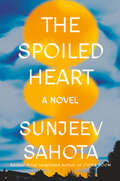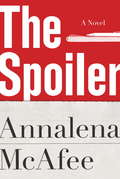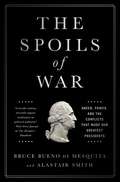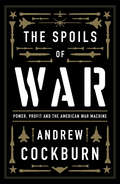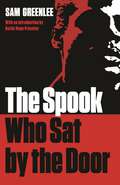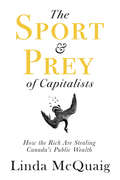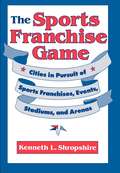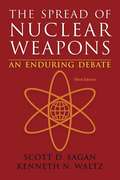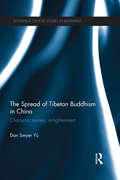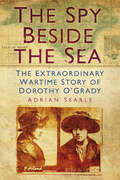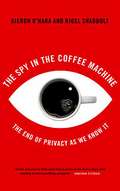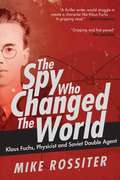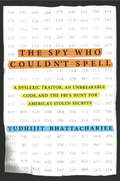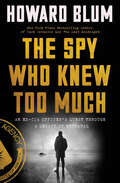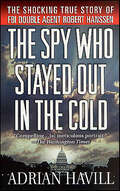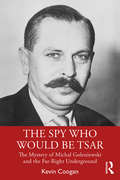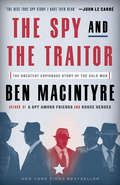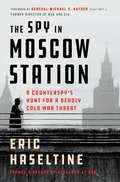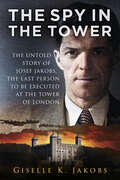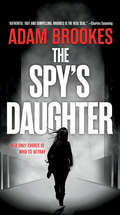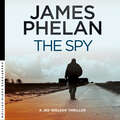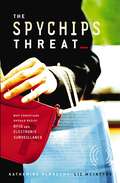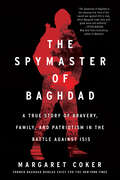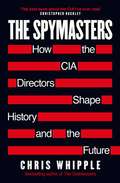- Table View
- List View
The Spoiled Heart: A novel
by Sunjeev Sahota&“The Spoiled Heart confirms Sunjeev Sahota's position as one of our essential novelists.&” —Karan Mahajan, author of the National Book Award Finalist The Association of Small Bombs A brilliant and riveting story of ambition, love, family secrets, and unintended consequences, from &“bold storyteller&” (The New Yorker) and two-time Booker Prize nominee Sunjeev SahotaNayan Olak keeps seeing Helen Fletcher around town. She&’s returned with her teenage son to live in the run-down house at the end of the lane, and—though she&’s strangely guarded—Nayan can&’t help but be drawn to her. He hasn&’t risked love since losing his young family in a terrible accident twenty years earlier.In the wake of the tragedy, Nayan&’s labor union, long a cornerstone of his community, became the center of his life: a way for him to channel his energies into making the world a better—fairer, as he sees it—place. Now, he&’s decided to mount a run for the leadership. But his campaign pits him against a newcomer, Megha, who quickly proves to be a more formidable challenger than he anticipated.As Nayan&’s differences with Megha spin out of control, complicating the ideals he&’s always held dear, he grows closer to Helen—and unknowingly barrels toward long-held secrets about how their pasts might be connected. Suddenly, much more is threatened than his chances of winning.In one sense a tragedy in the classic mold, tracing one man&’s seemingly inexorable fall, The Spoiled Heart is also an explosively contemporary story of how a few words or a single action—to one person careless, to another, charged—can trigger a cascade of unimaginable consequences. A vivid and multi-layered exploration of the mysteries of the heart, how community is forged and broken, and the shattering impact of secrets and assumptions alike, it is a blazing achievement from one of Britain&’s foremost living writers.
The Spoiler
by Annalena McafeeA dark hyper-comedy set in London in the late 1990s during the last gasp of the newspaper wars just before the dot-com tidal wave--about two female journalists at opposite ends of their life and work who become locked in a fierce tango of wills and whose lives are forever changed by their (not-so-) brief (head-on) encounter.At the novel's center--a legendary prize-winning war correspondent (called in her day "The Newsroom Dietrich" because of her luminescent beauty) now in her eighties, at the end of her career, who, over the decades, as the intrepid golden girl of the press, has been on the front lines or in the foxholes of every major theater of war of the twentieth century (Madrid; Normandy; Buchenwald; Berlin; Algiers; Korea; Vietnam). She is recognized everywhere (she finds fame mortifying these days); lionized for her fearless, politically informed, objective reporting; and now, though fragile and in an accelerating decline, her goddess-like beauty long gone, her style of writing--unbiased reportage--obsolete in the age of New Journalism, is rediscovered with the reissue of her frontline journalism, and the about-to-be-published collection of her Pulitzer Prize-winning dispatches. The other, a young up-and-not-so-coming reporter in her twenties; a degree in media studies, a freelance editor who compiles A-lists (Ten Best / Ten Worst; What's In / What's Out) for a down-market magazine of a newspaper specializing in celebrity gossip, unexpectedly sent to write a feature on the venerated "doyenne of British journalists"--to get the dirt on her glittering Hollywood days, her many affairs and three marriages...What ensues is a high-stakes, high-risk battle of wit and wills as lives are shaken, secrets unearthed, and headlines blast (unconfirmed) "truths," with one newspaper--the spoiler--playing off against another in a ruthless, desperate grab for sensation and circulation.
The Spoils of War: Greed, Power, and the Conflicts That Made Our Greatest Presidents
by Bruce Bueno de Mesquita Alastair SmithWhy are America's most beloved presidents also our most dangerous?It's striking how many of the presidents Americans venerate-Abraham Lincoln, George Washington, Franklin D. Roosevelt, and John F. Kennedy, to name a few-oversaw some of the republic's bloodiest years. Perhaps they were driven by the needs of the American people and the nation. Or maybe they were just looking out for themselves.This revealing and entertaining book puts some of America's greatest leaders under the microscope, showing how their calls for war, usually remembered as brave and noble, were in fact selfish and convenient. In each case, our presidents chose personal gain over national interest while loudly evoking justice and freedom. The result is an eye-opening retelling of American history, and a call for reforms that may make the future better.Bueno de Mesquita and Smith demonstrate in compelling fashion that wars, even bloody and noble ones, are not primarily motivated by democracy or freedom or the sanctity of human life. When our presidents risk the lives of brave young soldiers, they do it for themselves.
The Spoils of War: Power, Profit and the American War Machine
by Andrew CockburnWhy Does America Go to War?In the last decades, America has gone to war as supposed defenders of democracy. The War on Terror was waged to protect the west from the dangers of Islamists. US Solders are stationed in over 800 locations across the world to act as the righteous arbiters of the rule of law. In What The Spoils of War Andrew Cockburn brilliantly dissects the intentions behind Washington's martial appetites.The American war machine can only be understood in terms of the "private passions" and "interests" of those who control it - principally a passionate interest in money. Thus, as he witheringly reports, Washington expanded NATO to satisfy an arms manufacturer's urgent financial requirements; the U.S. Navy's Pacific fleet deployments were for years dictated by a corrupt contractor who bribed high-ranking officers with cash and prostitutes; senior marine commanders agreed to a troop surge in Afghanistan in 2017 "because it will do us good at budget time."Based on years of wide-ranging research, Cockburn lays bare the ugly reality of the largest military machine in history: squalid, and at the same time terrifyingly dangerous.
The Spook Who Sat by the Door, Second Edition (African American Life Series)
by Sam GreenleeA classic in the black literary tradition, The Spook Who Sat by the Door is both a comment on the civil rights problems in the United States in the late 1960s and a serious attempt to focus on the issue of black militancy. Dan Freeman, the "spook who sat by the door," is enlisted in the CIA's elitist espionage program. Upon mastering agency tactics, however, he drops out to train young Chicago blacks as "Freedom Fighters" in this explosive, award-winning novel. As a story of one man's reaction to ruling-class hypocrisy, the book is autobiographical and personal. As a tale of a man's reaction to oppression, it is universal.
The Sport and Prey of Capitalists: How the Rich Are Stealing Canada’s Public Wealth
by Linda McQuaigWhy are we selling off the impressive public enterprises we often battled as a nation to create? In the early 1900s, thousands of Canadians battled wealthy interests, winning control of Niagara Falls and creating a public power company. Another popular movement succeeded in creating Canada’s public broadcasting system to counter American dominance of the airwaves. And a Canadian doctor established a publicly owned laboratory that saved countless lives by producing affordable medications, contributing to medical breakthroughs and helping to eradicate smallpox throughout the world. But in recent decades, we have allowed our inspiring public enterprises to be privatized and our vital public programs downsized, leaving us increasingly dominated by the forces of private greed that rule the marketplace. In The Sport and Prey of Capitalists, Linda McQuaig challenges the dogma of privatization, which has defined our political era. She argues that now more than ever, as we grapple with climate change and income inequality, we need to expand, not shrink, our public sphere.
The Sports Franchise Game
by Kenneth L. ShropshirePower, prestige, and millions of dollars--these are the stakes in the sports franchise game. In this book, sports attorney Kenneth Shropshire describes the franchise warfare that pits city against city in the fierce bidding competition to capture major league teams. Rigorous research, fascinating interviews with major players, stories behind the headlines, and an insider's perspective converge in this rare view of the business side of professional sports. Shropshire portrays a complex web of motivations, negotiations, and public relations, and discusses examples from Philadelphia, the Bay Area, and Washington D.C.
The Spread Of Nuclear Weapons: An Enduring Debate (Third Edition)
by Kenneth N. Waltz Scott Douglas SaganOver the past fifteen years, The Spread of Nuclear Weapons has been a staple in International Relations courses because of its brevity and crystal-clear explanations. The new edition, An Enduring Debate, continues the important discussion of nuclear proliferation and the dangers of a nuclear-armed world. With new chapters on the questions surrounding a nuclear North Korea, Iran, and Iraq and the potential for a world free of nuclear weapons, this Third Edition will continue to generate a lively classroom experience.
The Spread of Tibetan Buddhism in China: Charisma, Money, Enlightenment (Routledge Critical Studies in Buddhism)
by Dan Smyer YuFocusing on contemporary Tibetan Buddhist revivals in the Tibetan regions of the Sichuan and Qinghai Provinces in China, this book explores the intricate entanglements of the Buddhist revivals with cultural identity, state ideology, and popular imagination of Tibetan Buddhist spirituality in contemporary China. In turn, the author explores the broader socio-cultural implications of such revivals. Based on detailed cross-regional ethnographic work, the book demonstrates that the revival of Tibetan Buddhism in contemporary China is intimately bound with both the affirming and negating forces of globalization, modernity, and politics of religion, indigenous identity reclamation, and the market economy. The analysis highlights the multidimensionality of Tibetan Buddhism in relation to different religious, cultural, and political constituencies of China. By recognizing the greater contexts of China’s politics of religion and of the global status of Tibetan Buddhism, this book presents an argument that the revival of Tibetan Buddhism is not an isolated event limited merely to Tibetan regions; instead, it is a result of the intersection of both local and global transformative changes. The book is a useful contribution to students and scholars of Asian religion and Chinese studies.
The Spy Beside the Sea: The Extraordinary Wartime Story of Dorothy O'Grady
by Adrian SearleDorothy O’Grady is uniquely placed in the annals of espionage. She was the first Briton condemned to death under the Treachery Act of 1940 after she was frequently spotted on the outskirts of Sandown (a prohibited area on the Isle of Wight), insisting time and again that her dog had strayed. Had her appeal not saved her from the gallows, she would have been the only woman of any nationality to suffer death under the Act during the Second World War – indeed, the only woman to be executed in Britain for spying in the 20th century. Yet the full story of her extraordinary brush with notoriety and its enduring legacy has never been told, despite the fact that it has more than once dominated the front pages of the British press and inspired both a BBC radio drama and a novel. Now, with the benefit of access to previously classified documents, the truth underpinning the O’Grady legend can finally be revealed. Following her appeal she served nine years in prison for her wartime crimes – but was she really a spy in the employ of Germany? Or was O'Grady, as she insisted years later, a self-seeking tease who committed her apparent treachery ‘for a giggle’? Or was there some other motivation which drove her to wartime infamy in a case which reverberated around the world? In The Spy Beside the Sea, author and journalist Adrian Searle examines all the evidence to reach a disturbing conclusion.
The Spy In The Coffee Machine: The End of Privacy as We Know It
by Kieron O'Hara Nigel ShadboltWhat do you know about the new surveillance state that has been created in the wake of pervasive computing - that is, the increasing use of very small and simple computers in all sorts of host - from your computer to your coat? Well, these little computers can communicate via the web and form powerful networks whose emergent behaviour can be very complex, intelligent, and invasive. The question is: how much of an infringement on privacy are they? Could these intelligent networks be used by governments, criminals or terrorists to undermine privacy or commit crimes? From CCTVs to blogging, from cookies to RFID tags, we are sleepwalking into a new state of global hypersurveillance. And when even cans of Coke are connected to the internet, the risk of someone misusing this information is very high indeed. Kieron O'Hara is Senior Research Fellow in Electronics and Computer Science at the University of Southampton, UK. Nigel Shadbolt is Professor of Artificial Intelligence at the University of Southampton, UK, and was President of the British Computer Society in 2006-7.
The Spy Who Changed the World: Klaus Fuchs, Physicist and Soviet Double Agent
by Mike RossiterThe incredible true story of a British physicist who was an undercover spy for the Soviets. The world first heard of Klaus Fuchs, the head of theoretical physics at the British Research Establishment at Harwell in February 1950 when he appeared at the Old Bailey, accused of passing secrets to the Soviet Union. For over sixty years disinformation and lies surrounded the story of Klaus Fuchs as the Governments of Britain, the United States and Russia all tried to cover up the truth about his treachery. Piecing together the story from archives in Britain, the United States, Russia and Germany, The Spy Who Changed the World unravels the truth about Fuchs and reveals for the first time his long career of espionage. It proves that he played a pivotal role in Britain's bomb program in the race to keep up with the United States in the atomic age, and that he revealed vital secrets about the atom bomb, as well as the immensely destructive hydrogen bomb to the Soviet Government. It is a dramatic tale of clandestine meetings, deadly secrets, family entanglements and illicit love affairs, all set against the tumultuous years from the rise of Hitler to the start of the Cold War.
The Spy Who Couldn't Spell: A Dyslexic Traitor, an Unbreakable Code, and the FBI's Hunt for America's Stolen Secrets
by Yudhijit BhattacharjeeThe thrilling, true-life account of the FBI's hunt for the ingenious traitor Brian Regan--known as the Spy Who Couldn't Spell. Before Edward Snowden's infamous data breach, the largest theft of government secrets was committed by an ingenious traitor whose intricate espionage scheme and complex system of coded messages were made even more baffling by his dyslexia. His name is Brian Regan, but he came to be known as The Spy Who Couldn't Spell. In December of 2000, FBI Special Agent Steven Carr of the bureau's Washington, D.C., office received a package from FBI New York: a series of coded letters from an anonymous sender to the Libyan consulate, offering to sell classified United States intelligence. The offer, and the threat, were all too real. A self-proclaimed CIA analyst with top secret clearance had information about U.S. reconnaissance satellites, air defense systems, weapons depots, munitions factories, and underground bunkers throughout the Middle East. Rooting out the traitor would not be easy, but certain clues suggested a government agent with a military background, a family, and a dire need for money. Leading a diligent team of investigators and code breakers, Carr spent years hunting down a dangerous spy and his cache of stolen secrets. In this fast-paced true-life spy thriller, Yudhijit Bhattacharjee reveals how the FBI unraveled Regan's strange web of codes to build a case against a man who nearly collapsed America's military security.INCLUDES PHOTOGRAPHS
The Spy Who Couldn't Spell: A Dyslexic Traitor, an Unbreakable Code, and the FBI's Hunt for America's Stolen Secrets
by Yudhijit BhattacharjeeThe thrilling, true-life account of the FBI’s hunt for the ingenious traitor Brian Regan—known as the Spy Who Couldn’t Spell. Before Edward Snowden’s infamous data breach, the largest theft of government secrets was committed by an ingenious traitor whose intricate espionage scheme and complex system of coded messages were made even more baffling by his dyslexia. His name is Brian Regan, but he came to be known as The Spy Who Couldn’t Spell. In December of 2000, FBI Special Agent Steven Carr of the bureau’s Washington, D.C., office received a package from FBI New York: a series of coded letters from an anonymous sender to the Libyan consulate, offering to sell classified United States intelligence. The offer, and the threat, were all too real. A self-proclaimed CIA analyst with top secret clearance had information about U.S. reconnaissance satellites, air defense systems, weapons depots, munitions factories, and underground bunkers throughout the Middle East. Rooting out the traitor would not be easy, but certain clues suggested a government agent with a military background, a family, and a dire need for money. Leading a diligent team of investigators and code breakers, Carr spent years hunting down a dangerous spy and his cache of stolen secrets. In this fast-paced true-life spy thriller, Yudhijit Bhattacharjee reveals how the FBI unraveled Regan’s strange web of codes to build a case against a man who nearly collapsed America's military security.INCLUDES PHOTOGRAPHS
The Spy Who Knew Too Much: An Ex-CIA Officer's Quest Through a Legacy of Betrayal
by Howard Blum“Howard Blum writes history books that read like thrillers.”—New York TimesA retired spy gets back into the game to solve a perplexing case—and reconcile with his daughter, a CIA officer who married into the very family that derailed his own CIA career—in this compulsive true-life tale of vindication and redemption, filled with drama, intrigue, and mystery from the New York Times bestselling author of The Last Goodnight, It’s a real-life thriller whose stunning conclusion will make headline news. On a sunlit morning in September 1978, a sloop drifts aimlessly across the Chesapeake Bay. The cabin reveals signs of a struggle, and “classified” documents, live 9 mm cartridges, and a top-secret “burst” satellite communications transmitter are discovered aboard. But where is the boat’s owner, former CIA officer John Paisley? One man may hold the key to finding out. Tennent “Pete” Bagley was once a rising star in America’s spy aristocracy, and many expected he’d eventually become CIA director. But the star that burned so brightly exploded when Bagley—who suspected a mole had burrowed deep into the agency’s core—was believed himself to be the mole. After a year-long investigation, Bagley was finally exonerated, but the accusations tarnished his reputation and tainted his career. When Bagley’s daughter Christina, a CIA analyst, married another intelligence officer who was the son of the man who had played a key role in the investigation into Bagley, it caused a painful rift between the two. But then came Paisley’s strange death. A murder? Suicide? Or something else? Pete, now a retired spy, launches his own investigation that takes him deep into his own past and his own longtime hunt for a mole. What follows is a relentless pursuit to solve a spy story—and an inspiring tale of a man reclaiming his reputation and his family. It’s a very personal quest that leads to a shocking conclusion.The Spy Who Knew Too Much includes 8 pages of black-and-white photographs.
The Spy Who Stayed Out in the Cold
by Adrian HavillRobert Philip Hansen thought he was smarter than the system. For decades, the quirky but respected counterintelligence expert, religious family man, and father of six, sold top secret information to agents of the Soviet Union and Russia. A self-taught computer expert, Hansen often encrypted his stolen files on wafer-thin disks. The data-some 6000 pages of highly classified documents-revealed precious nuclear secrets, outlined American espionage initiatives, and named names of agents-spies who covertly worked for both sides. Soviet government leaders, and their successors in the Russian Federation, used the stolen information to undermine U.S. policies and to eliminate spies in their own ranks. Moscow did not allow their moles the luxury of a defense: at least two men named by Hanssen were executed; a third languished for years in a Siberian hard labor camp.For more than twenty years, Bob Hanssen was the perfect spy. He personally collected at least $600,000 from his Russian handlers while another $800,000 was deposited in his name at a Moscow bank. Along with the cash came Rolex watches and cut diamonds. The money financed both his children's education at schools run by the elite and ultra-conservative Catholic organization, Opus Dei, and an inexplicably strange fling with a former Ohio "stripper of the year." But he didn't just do it for the money; he did it for the thrill and for a mysterious third reason rooted in religious mysticism. He lacked the people skills to play office politics, and it seemed the aging FBI analyst faced a disappointing career mired in middle management. Instead, he chose to become one of the most dangerous spies in America's history. And no one suspected him until just weeks before his arrest.Robert Philip Hanssen thought he was smarter than the system. And until February 18, 2001, he was right. That's when federal agents surrounded him while he was attempting to complete an exchange with his handlers at a Virginia park. When the G-men captured their mark, they catapulted the once innocuous bureaucrat onto the front pages of every newspaper in America. The most notorious spy since the Rosenbergs had finally become a victim of his own undoing.Now, drawing on more than 100 interviews with Bob Hanssen's friends, colleagues, coworkers, and family members, and confidential sources, best-selling author Adrian Havill tells the entire story you haven't read as only he can. The Spy Who Stayed Out in the Cold tells not only how he did it, but why.
The Spy Who Would Be Tsar: The Mystery of Michal Goleniewski and the Far-Right Underground
by Kevin CooganMichal Goleniewski was one of the Cold War’s most important spies but has been overlooked in the vast literature on the intelligence battles between the Western Powers and the Soviet Bloc. Renowned investigative journalist Kevin Coogan reveals Goleniewski's extraordinary story for the first time in this biography. Goleniewski rose to be a senior officer in the Polish intelligence service, a position which gave him access to both Polish and Russian secrets. Disillusioned with the Soviet Bloc, he made contact with the CIA, sending them letters containing significant intelligence. He then decided to defect and fled to America in 1961 via an elaborate escape plan in Berlin. His revelations led to the exposure of several important Soviet spies in the West including the Portland spy ring in the UK, the MI6 traitor George Blake, and a spy high up in the West German intelligence service. Despite these hugely important contributions to the Cold War, Goleniewski would later be abandoned by the CIA after he made the outrageous claim that he was actually Tsarevich Alexei Nikolaevich of Russia – the last remaining member of the Romanov Russian royal family and therefore entitled to the lost treasures of the Tsar. Goleniewski's increasingly fantastical claims led to him becoming embroiled in a bizarre demi-monde of Russian exiles, anti-communist fanatics, right-wing extremists and chivalric orders with deep historical roots in America's racist and antisemitic underground. This fascinating and revelatory biography will be of interest to students and researchers of the Cold War, intelligence history and right-wing extremism as well as general readers with an interest in these intriguing subjects.
The Spy and the Traitor: The Greatest Espionage Story of the Cold War
by Ben MacintyreNEW YORK TIMES BESTSELLER • From the celebrated author of Operation Mincement and The Siege comes the thrilling Americans-era tale of Oleg Gordievsky, the Russian whose secret work helped hasten the end of the Cold War.&“The best true spy story I have ever read.&”—JOHN LE CARRÉNamed a Best Book of the Year by The Economist • Shortlisted for the Bailie Giffords Prize in NonfictionIf anyone could be considered a Russian counterpart to the infamous British double-agent Kim Philby, it was Oleg Gordievsky. The son of two KGB agents and the product of the best Soviet institutions, the savvy, sophisticated Gordievsky grew to see his nation&’s communism as both criminal and philistine.He took his first posting for Russian intelligence in 1968 and eventually became the Soviet Union&’s top man in London, but from 1973 on he was secretly working for MI6. For nearly a decade, as the Cold War reached its twilight, Gordievsky helped the West turn the tables on the KGB, exposing Russian spies and helping to foil countless intelligence plots, as the Soviet leadership grew increasingly paranoid at the United States&’s nuclear first-strike capabilities and brought the world closer to the brink of war. Desperate to keep the circle of trust close, MI6 never revealed Gordievsky&’s name to its counterparts in the CIA, which in turn grew obsessed with figuring out the identity of Britain&’s obviously top-level source. Their obsession ultimately doomed Gordievsky: the CIA officer assigned to identify him was none other than Aldrich Ames, the man who would become infamous for secretly spying for the Soviets. Unfolding the delicious three-way gamesmanship between America, Britain, and the Soviet Union, and culminating in the gripping cinematic beat-by-beat of Gordievsky&’s nail-biting escape from Moscow in 1985, Ben Macintyre has crafted an electrifying account of an international hero. Like the greatest novels of John le Carré, The Spy and the Traitor brings readers deep into a world of treachery and betrayal, where the lines bleed between the personal and the professional, and one man&’s hatred of communism had the power to change the future of nations.
The Spy in Moscow Station: A Counterspy's Hunt for a Deadly Cold War Threat
by Eric HaseltineThe thrilling, true story of the race to find a leak in the United States Embassy in Moscow—before more American assets are rounded up and killed. Foreword by Gen. Michael V. Hayden (Retd.), Former Director of NSA & CIAIn the late 1970s, the National Security Agency still did not officially exist—those in the know referred to it dryly as the No Such Agency. So why, when NSA engineer Charles Gandy filed for a visa to visit Moscow, did the Russian Foreign Ministry assert with confidence that he was a spy? Outsmarting honey traps and encroaching deep enough into enemy territory to perform complicated technical investigations, Gandy accomplished his mission in Russia, but discovered more than State and CIA wanted him to know. Eric Haseltine's The Spy in Moscow Station tells of a time when—much like today—Russian spycraft had proven itself far beyond the best technology the U.S. had to offer. The perils of American arrogance mixed with bureaucratic infighting left the country unspeakably vulnerable to ultra-sophisticated Russian electronic surveillance and espionage.This is the true story of unorthodox, underdog intelligence officers who fought an uphill battle against their own government to prove that the KGB had pulled off the most devastating penetration of U.S. national security in history. If you think "The Americans" isn't riveting enough, you'll love this toe-curling nonfiction thriller.
The Spy in the Tower: The Untold Story of Joseph Jakobs, the Last Person to be Executed in the Tower of London
by Giselle JakobsA family man who ran afoul of the Nazis, Josef Jakobs was ill-prepared for an espionage mission to England. Captured by the Home Guard after breaking his ankle, Josef was interrogated at Camp 020, before being prosecuted under the Treachery Act 1940 and executed on 15 August 1941.An open and shut case? MI5’s files suggest otherwise.Faced with the threat of a German invasion in 1940/41, MI5 used promises and threats to break enemy agents, extract intelligence and turn some into double agents, challenging the validity of the ‘voluntary’ confessions used to prosecute captured spies. But, more than that – was Josef set up to fail? Was he a sacrifice to test the double-cross system?The Spy in the Tower tells the untold story of one of Nazi Germany’s failed agents, and calls into question the legitimacy of Britain’s wartime espionage trials and the success of its double-cross system.
The Spy's Daughter
by Adam BrookesThe thrilling third novel from multi-award-nominated author Adam Brookes is paranoid, tense spy fiction at its very finest. Meet Pearl Tao: an American girl with a lethal secret.Pearl longs for the life of a normal American teenager: summers at the pool, friends, backyard barbecues in the Washington DC suburbs. But she is different.Her gift for mathematics means overprotective parents and college sponsorship from a secretive technology corporation. And now, aged nineteen, she is beginning to understand what her parents intend for her. The terrifying role she is to play. Her only hope of escape lies with two sidelined and discredited spies: Trish Patterson and Philip Mangan. Finding out the truth about Pearl will be the biggest mission they'll ever undertake."Authentic, taut and compelling. Brookes is the real deal."Charles Cumming
The Spy: The Jed Walker Series Book 1 (The Jed Walker series #1)
by James PhelanA sinister group – code-named Zodiac – has launched devastating global attacks. Twelve targets across the world, twelve code-named missions. Operating distinct sleeper cells, they are the ultimate terrorist organisation, watching and waiting for a precise attack to activate the next group. It is a frightening and deadly efficient way to stay one step ahead. And cause the most chaos. For ex-CIA operative Jed Walker, chaos is his profession. On the outer, burned by his former agency, he is determined to clear his name. Stopping Zodiac is the only way. Desperate to catch the killers and find the mastermind, he can't afford to lose the next lead, but that means that sometimes the terrorists have to win. Ultimately, it all comes down to Walker: he's the only one who can break the chain and put the group to sleep . . . permanently. It's exactly eighty-one hours until deadline.
The Spychips Threat: Why Christians Should Resist RFID and Electronic Surveillance
by Katherine AlbrechtEver feel like you're being watched? This eye-opening book shows how a new technology may soon track your every move . . . and pave the way for the fulfillment of end-time biblical prophecy.A revolutionary technology called RFID (Radio Frequency IDentification) is poised to expose our habits, secrets, and slip-ups to money-hungry marketers, savvy criminals, and government snoops. One day soon, our shoes could keep track of our footsteps. Stores could ID us as we walk in the door. Hidden "tracking units" could log even our restroom visits.Global corporations and government agencies have already invested millions in a plan that uses tiny microchips to uniquely number and track everyday items. Parts of this Orwellian vision are uncannily similar to the prophesies of Revelation. Chipping inanimate objects is just the start-the endpoint is a form of RFID that can be injected into the flesh. This work-an updated version of Katherine Albrecht and Liz McIntyre's controversial and award-winning book Spychips-is a clarion call to Christians to take a stand against plans to monitor and control people through this unnerving new technology.Using public records, real-world examples, and biblical prophesies, Albrecht and McIntyre uncover the frightening story behind RFID and show us how to protect our privacy and civil liberties while there's still time.
The Spymaster of Baghdad: A True Story of Bravery, Family, and Patriotism in the Battle against ISIS
by Margaret CokerFrom the former New York Times bureau chief in Baghdad comes the gripping and heroic story of an elite, top-secret team of unlikely spies who triumphed over ISIS. The Spymaster of Baghdad tells the dramatic yet intimate account of how a covert Iraqi intelligence unit called “the Falcons” came together against all odds to defeat ISIS. The Falcons, comprising ordinary men with little conventional espionage background, infiltrated the world’s most powerful terrorist organization, ultimately turning the tide of war against the terrorist group and bringing safety to millions of Iraqis and the broader world. Centered around the relationship between two brothers, Harith al-Sudani, a rudderless college dropout who was recruited to the Falcons by his all-star younger brother Munaf, and their eponymous unit commander Abu Ali, The Spymaster of Baghdad follows their emotional journey as Harith volunteers for the most dangerous mission imaginable. With piercing lyricism and thrilling prose, Coker’s deeply-reported account interweaves heartfelt portraits of these and other unforgettable characters as they navigate the streets of war-torn Baghdad and perform heroic feats of cunning and courage.The Falcons’ path crosses with that of Abrar, a young, radicalized university student who, after being snubbed by the head of the Islamic State’s chemical weapons program, plots her own attack. At the near-final moment, the Falcons intercept Abrar’s deadly plan to poison Baghdad’s drinking water and arrest her in the middle of the night—just one of many covert counterterrorism operations revealed for the first time in the book. Ultimately, The Spymaster of Baghdad is a page-turning account of wartime espionage in which ordinary people make extraordinary sacrifices for the greater good. Challenging our perceptions of terrorism and counterterrorism, war and peace, Iraq and the wider Middle East, American occupation and foreign intervention, The Spymaster of Baghdad is a testament to the power of personal choice and individual action to change the course of history—in a time when we need such stories more than ever.
The Spymasters: How The Cia Directors Shape History And The Future
by Chris WhippleFrom the New York Times bestselling author of The Gatekeepers, a remarkable, behind-the-scenes look at what it's like to run the world's most powerful intelligence agency, and how the CIA is often a crucial counterforce against presidents threatening to overstep the powers of their office. Only 11 men and one woman are alive today who have made the life-and-death decisions that come with running the world's most powerful and influential intelligence service. With unprecedented, deep access to nearly all these individuals, Chris Whipple tells the story of an agency that answers to the United States president, but whose activities — spying, espionage, and covert action — take place on every continent. At pivotal moments, the CIA acts as a brake on rogue presidents, starting in the mid-seventies with DCI Richard Helms&’ refusal to conceal Richard Nixon&’s criminality and continuing recently as the actions of a CIA whistleblower ignited impeachment proceedings against Donald Trump. Since its inception in 1947, the Central Intelligence Agency has been a powerful player on the world stage, operating largely in the shadows to protect American interests. For The Spymasters, Whipple conducted extensive, exclusive interviews with nearly every living CIA director, pulling back the curtain on the world's elite spy agency and showing how the CIA partners — or clashes — with counterparts in Britain, France, Germany, Israel, Jordan, Saudi Arabia and Russia. Topics covered in the book include attempts by presidents to use the agency for their own ends; simmering problems in the Middle East and Asia; rogue nuclear threats; and cyberwarfare. The Spymasters recounts seven decades of CIA activity and elicits predictions about the issues — and threats — that will engage the attention of future operatives and analysts. Including eye-opening interviews with George Tenet, John Brennan, Leon Panetta and David Petraeus, as well as those who've just recently departed the agency, this is a timely, essential and important contribution to current events.
